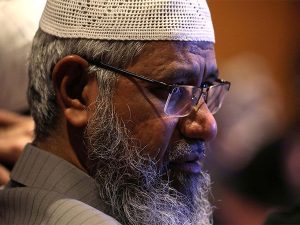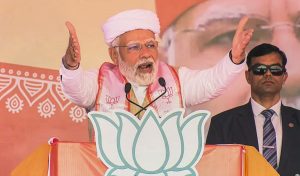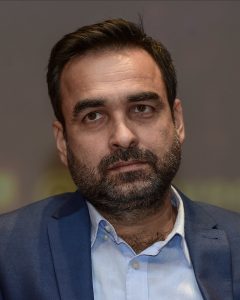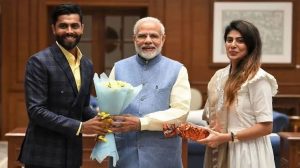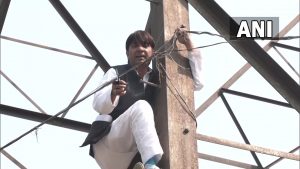Ten days into the polling season and two phases done, attacks and counter-attacks, promises and counter-promises are far from losing any momentum. The Bharatiya Janata Party’s aggression versus Opposition parties’ solid defence is making these elections, which are being held amid once-in-a-century pandemic, nothing less than the much-awaited Games of Thrones season. On April 6, in the third and biggest phase of the eight-phased mega elections, five states – West Bengal, Assam, Kerala, Tamil Nadu, Puducherry – are voting to choose their governments.
West Bengal, where the BJP is pulling out all the stops to oust Chief Minister Mamata Banerjee, is polling on 31 of the total 294 seats on Tuesday. The state, where the elections are being held in eight phases, will be left with five more phases after April 6 with the last scheduled for April 29.
The state has witnessed the most acerbic campaign in years with the BJP and Mamata Banerjee’s Trinamool Congress attacking each other with no holds barred. From violence to murders to “insider-outsider” debate to “didi vs dada” in Nandigram, Bengal has seen the worst of it all, so far.
Assam, in its third and final phase today, is voting for 40 of its 126 assembly seats. The ruling BJP under Sarbananda Sonowal is steady but on backfoot because of the controversial Citizenship Amendment Act (CAA). Violent protests erupted in 2019 after Parliament approved the Citizenship Amendment Bill which seeks to fast-track the grant of citizenship to non-Muslim minorities from neighbouring countries of Pakistan, Bangladesh and Afghanistan. Assam, which has always resisted the intrusion of “outsiders” feels that the law would act as an catalyst to legitimise the claims of outsiders. Also, the Congress’s alliance with Maulana Badruddin Ajmal-led All India United Democratic Front (AIUDF), which bagged 13 seats in the last elections, appears to be a formidable force to reckon with. Adding to the ruling BJP’s troubles is the former ally, Bodoland Peoples’ Front (BPF), who also have joined the Congress-led alliance “mahajoth (grand alliance)”.
Also Read| In Shashi Tharoor’s Kerala ground report, scope for BJP too
West Bengal and Assam have been the primary focus of Prime Minister Narendra Modi’s hectic campaign, who has so far addressed 23 rallies of which most were held in the two states.
Kerala, Tamil Nadu and the union territory of Puducherry are voting in one go in this mega phase of the assembly elections.
Kerala, the state which has for nearly four decades now alternated between the Left Democratic Front (LDF) and the United Democratic Front (UDF), will see an interesting triangular fight between the ruling LDF, the opposition UDF and the BJP-led NDA. Since 2016, the NDA has made political inroads into the state. The local body elections held in December last sprung a surprise with the NDA getting 19 % vote share.
The BJP – which has just one legislator in the state ruled by Chief Minister Pinnarayi Vijayan – has disrupted the otherwise straight voting pattern of Kerala by bringing in 88-year-old technocrat E Sreedharan, dubbed as “Metro Man” for his work on mass transit projects like the Delhi Metro. The octogenarian will fight the Kerala assembly election from Palakkad, the seat where the BJP came second in the last state election.
In Tamil Nadu, the ruling AIADMK, which has forged an alliance with the BJP, is facing massive anti-incumbency after 10 years in power. The opposition Congress-DMK alliance under K Karunanidhi’s son MK Stalin is throwing up a formidable challenge in front of the ruling party. The 2016 state election was marked by history-defying second successive victory of the AIADMK under the then chief minister J Jayalalithaa. AIADMK founder MG Ramachandran was the only leader who managed to successively win polls (1977-87) in Tamil Nadu and after that no other party managed to do it, up until 2016.
It was after the gap of 32 years that one Tamil Nadu party was able to retain power, and it was all about Thalaivi, as Jayalalithaa was fondly referred to. Just seven months later, she died on December 5 after prolonged illness. Minus Jayalalithaa, AIADMK seems vulnerable before Stalin, who has been able to mobilise the DMK cadre and has improved the corrupt image of his party.
This time, Tamil Nadu is not all about AIADMK and DMK. Two new entrants — Makkal Needhi Maiam (MNM) of Kamal Haasan and Amma Makkal Munnetra Kazhagam (AMMK) of TTV Dhinakaran, nephew of Jayalalithaa’s aide Sasikala, are also in the fray. Dhinakaran announced that he has partnered with Asaduddin Owaisi’s All India Majlis-e-Ittehadul Muslimeen (AIMIM) for the assembly elections. The majority mark in the 234-member assembly is 117.
In the union territory of Puducherry, where the Congress government recently lost power after four of its MLAs resigned, pushing the party into minority, and is currently under presidential rule, elections will be held in a single phase on April 6.
The Congress has a tie-up with Dravida Munnetra Kazhagam (DMK), while the BJP is contesting in alliance with All India NR Congress and DMK’s rival All India Anna Dravida Munnetra Kazhagam (AIADMK). Kamal Haasan’s MNM, Tamil Nationalist Party, Naam Tamilar Katchi, are also in the fray.
In the last election, the Congress had won 15 seats and the DMK had bagged three in the 33-member assembly. V Narayanasamy became the chief minister and stayed in office till February 22, 2021, when he was unable to clear the floor test. Of the total 33 seats, three are nominated and the rest are directly elected. The majority mark is 16 to form the government.
For the Election Commission, conducting polls in the five states simultaneously is sure a mammoth task. This is the second biggest challenge for the poll body amid COVID-19 pandemic. The Election Commission had successfully conducted Bihar Assembly elections in November last year.

